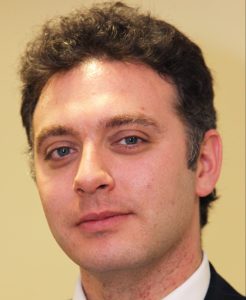
It often strikes me that the variety in and of general practice is an exhausting but often rewarding selling-point for a career. It is a selling point for the profession itself (challenging and interesting) and for the resources needed to do it well (GPs are ‘best’ placed to do many great things but they do require time and money invested in various forms).
Defining GP
Greenhalgh (for example) argues that primary care is an applied, problem-orientated discipline drawing on a range of other theoretical and applied disciplines.1 Most (of many) definitions include first-contact care, undifferentiated care, continuity over time, coordinated within and across sectors and a focus on the individual and the population or community.2 She also identifies core descriptors for good primary care, which are also pretty varied:
- Holistic: Embraces the complexities and interactions of bodily systems, mental responses, family community and sociocultural context. It also seeks continuity of care through time.
- Balanced: Seeks a middle ground between breadth and depth of knowledge, between lay and medical models of illness and distress between intervention and leaving well alone.
- Patient-centred: Sees each patient as an individual and seeks to offer personalised rather than standardised packages of care.
- Rigorous: Primary care seeks to draw judiciously on multiple sources of evidence (patient’s unique predicament, relevant research literature and wider family and social context) when considering the action to take in relation to a particular problem.
- Equitable: Takes responsibility for social justice in the allocation of scarce resources, hence works proactively with, and plays an advocacy role for, the disempowered, inarticulate and socially excluded. This may include challenging the educated, worried well when they seek a disproportionate share of healthcare resources.
- Reflective: It is practiced in conditions of ignorance and/or uncertainty. Requires a questioning attitude, willingness to revise provisional diagnoses in light of emerging findings and the humility to defer to higher authority (specialist, parent, patient) when appropriate.3
‘Ologies
This month’s articles illustrate and embody that variety, of ‘ologies,’ of needs and of practical skills. Our book reviews showcase the relevance of philosophy ethics and law if we want to do good work in a good society. Most people have never heard of Derek Parfit, but he has probably influenced the way many of us think today. Terry Kemple reviews a new biography.4 Trish Greenhalgh reviews ‘Bringing Down Goliath’ by Jolyon Maugham: erstwhile rags-to-riches tax lawyer, agitator, social media influencer and King’s Counsel with attitude. His arguments about why societal conflicts increasingly need legal recourse deserve careful scrutiny.5 I review a new quick reference book on medical law and ethics, useful for a trainee or a trainer in a hurry.6
Whose autonomy?
Is the answer to ethical dilemmas more patient choice? Peter Levin warns that delegating choice to patients as customers should not also abdicate responsibility for patient safety.7 A recent BBC Panorama ‘expose’ of private ADHD clinics suggests that some online providers are over-diagnosing ADHD following inadequate clinical assessments. Patients are increasingly turning to private providers both out of pocket and through right-to–choose arrangements, and ultimately, GPs may be asked to take on responsibility for prescribe suggested medication. Nada Khan explore the perils for patients and practitioners.8 Elizabeth Dapre argues that introducing a temporary weight-loss fix using GLP-1 agonists without consideration of the wider implications and long-term plan is a misguided policy.9 Choices can become more complex when we recognise the role of family and community across cultures in autonomy and the being and believing which underlie that autonomy. Tim Senior illustrates this – community is central to the Aboriginal definition of health.10
The spice of life and the essence of GP
The breadth of ways that general practice is involved in family health is showcased as Ree’Thee Bhatt explains the health impacts of mould11 and Ahmed Rashid takes us ona summer tour of useful and interesting papers and podcasts, with topics that include ankle fractures, depression and Donald Trump.12 Helen Leach gives up an updated insight into the madness of King George III with leaning points for today’s practitioner.13
In the summer months I am partial to a tasty spiced dip made from the blending of avocado with a number of ingredients, simultaneously physically cool and chemically warm, it’s nice on its own or as a meal accompaniment – guacamole. Could this be a metaphor for the blending of skills, knowledge and capabilities in general practice? Reading this month’s articles I am reminded less guacamole than of how that variety manifests in the working day of a GP: Whack-a-mole, the childrens’ game where moles pop up out of their holes at random and you have to hit them with a mallet to keep them under control…
References
- Greenhalgh T. The ‘ologies’ (underpinning academic disciplines) of primary health care.In: Primary Health Care: Theory and Practice. Oxford: Blackwell, 2007: p.23–26.
- Greenhalgh T. Introduction. In: Primary health care: Theory and Practice. Oxford: Blackwell, 2007: p.1–22.
- Papanikitas A, Spicer, Teaching and learning ethics in primary healthcare 225-231. In: Papanikitas A, Spicer J. (eds) A Handbook of Primary Care Ethics. Abingdon: CRC Press, 2018.
- Kemple T. Book review: A philosopher and his mission to save morality. Br J Gen Pract 2023; DOI: https://doi.org/10.3399/bjgp23X734613
- GreenhalghT. Book review: Bringing down Goliath. How Good Law Can Topple the Powerful. Br J Gen Pract 2023; DOI: https://doi.org/10.3399/bjgp23X734601
- Papanikitas A. Book review: The Oxford Handbook of Medical Ethics and Law. Br J Gen Pract 2023; DOI: https://doi.org/10.3399/bjgp23X734625
- Levin P. ‘Choose well’ is not good advice to people in need of NHS care. Br J Gen Pract 2023; DOI: https://doi.org/10.3399/bjgp23X734529
- Khan N. ADHD and the rise of the private diagnosis. Br J Gen Pract 2023; DOI: https://doi.org/10.3399/bjgp23X734517
- Dapre E. Are GLP-1 agonists the answer to our obesity epidemic? DOI: https://doi.org/10.3399/bjgp23X734589
- Senior T. The Aboriginal definition of health. Br J Gen Pract 2023; DOI: https://doi.org/10.3399/bjg23X734637.
- Bhatt R. Mould and its human toll. Br J Gen Pract 2023; DOI: https://doi.org/10.3399/bjgp23X734541
- Rashid A. Ankle fracture, detecting depression, laboratory expenditure, and Donald Trump. Br J Gen Pract 2023; DOI: https://doi.org/10.3399/bjgp23X734553
- Leach H, Madness and the monarchy: diagnosing King George III. Br J Gen Pract 2023; DOI: https://doi.org/10.3399/bjgp23X734577
Featured Photo by ahmad kanbar on Unsplash








